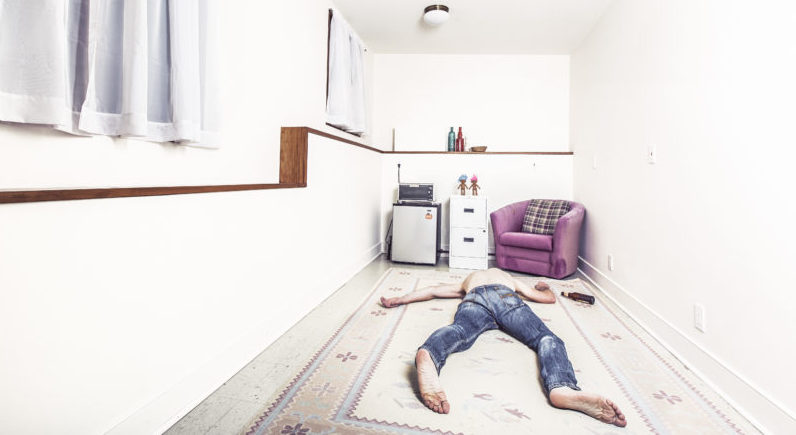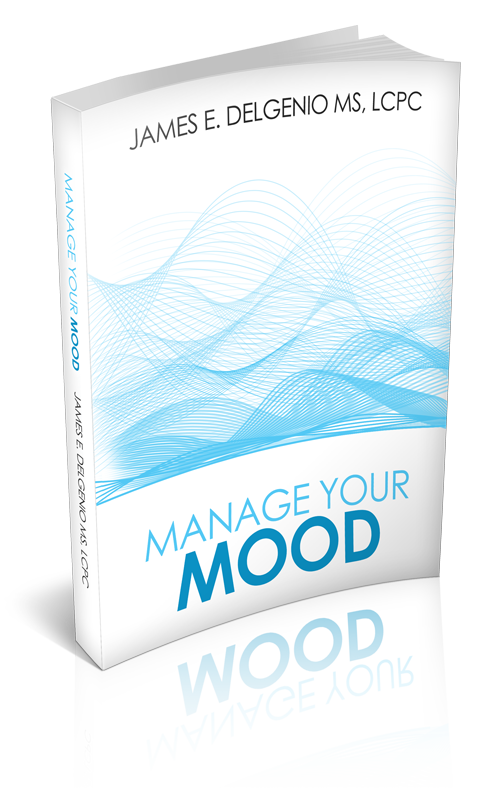By: James E. DelGenio MS, LCPC
Senior Staff Therapist,
The Family Institute at Northwestern University
Denial is the biggest obstacle to management and recovery of Bipolar Mood Disorder.
People with bipolar disorders, in particular, seem to have the most issues with denial and are, therefore, the most difficult people to treat from a therapist stand point. Through self-deception, rationalization, justification, and excuse making, a person can deny that they have a problem when everyone around them sees that the problem is obvious. This seems to be most common with Bipolar Disorders.
Denial usual takes place around several key issues. They are: acceptance of the disorder, the use of medication in helping manage the disorder and the detrimental role of alcohol and substance use or abuse in achieving wellness.
When clinical depression is the disorder; it is biological. It is genetic in origin. One can usually trace it in family history. It may be a grandparent, parent, uncle or cousin, even if it was never formally diagnosed, the history is typically there. No matter how much one tries to pull themselves up by their bootstraps and try harder, they will not make a significant impact on managing their symptoms. Even a skilled CBT therapist, employing cognitive behavioral techniques will not make a significant difference in the management of the disorder.
This means that medication is indicated. Some women, generally more men will initially refuse medication. I often hear, “I won’t take medication.” I describe my view and experience in general terms. If that is not enough to convince them, I will agree to cognitive behavioral therapy for period of time. If there is still no impact on symptom management through clearly defined goals, I revisit the medication issue to encourage reconsideration. Ultimately, it’s your life; you can be a victim of your disorder or you can choose to manage it. It doesn’t happen often but I have discontinued treatment and offered some referrals to other therapists who are willing to treat the disorder without the help of medication. Personally, I just can’t do it at least not for very long.
This is also true around the use of alcohol and recreational drugs such a marijuana. Remember, alcohol is a depressant. When you are already depressed why make it worse. Initially it helps but then it slams you in the days that follow. That is why it is known as self-medicating.
Some clients, again mostly men will refuse to consider stopping the use of marijuana. Yet the reason they have initiated treatment is panic and anxiety. Duh! Though not addictive per se, marijuana is habit forming psychologically. Prolonged daily use may cause anxiety and panic for those with a mood disorder. Take medication or stop using. I encourage both.
Though denial can be an issue for both men and women, I have found that men especially do not want to admit that they have a problem. They are generally more resistant to seeking help, taking medication or facing dependence.
In my practice, I recognize that this is a trust issue. If I feel that this will be an issue, I will put the referral for a medication evaluation off for a time while building a therapeutic relationship. I also address this resistance as most therapists do by comparing mood disorders with other physical disabilities such as diabetes or epilepsy. All are physical issues with a genetic origin which affects thinking and behavior. If your doctor told you, “I’m sorry to inform you that you are diabetic like your father was”, you would not like it but would likely be willing to take insulin injections.
The same thought process regarding antidepressants or mood stabilizing medication should apply with a diagnosis of mood disorder. There really is very little difference! Until you can accept your issues and play the hand you were dealt by genetics, environment and personality traits, you will be unlikely to manage your life well.
This will affect your marriage, relationships, employment and your ability to cope with day to day life. There is no soft way to peddle this. A psychiatric evaluation will determine if medication is appropriate. Medication does the first 50% and is considered the foundation. Once on the right medication at the right dose, symptom management with a skilled therapist will likely be more successful. Once this is addressed, we are more likely to resolve relationship issues through individual, family or couples counseling.
Case Scenario
Case Scenario: Denial or Acceptance – Beth
Beth is a twenty something year old female who enjoys partying with friends. Her friends can drink, smoke pot and stay out until 4am without major negative impact on their life. Beth cannot. Her partying has made her medication ineffective.
She initially presented with severe anger issues. She reported that she would lose control, even become violent. She was already on an antidepressant but it wasn’t helping. The symptoms of clinical depression including her lack of motivation, poor sleep, poor concentration and tendency to withdraw and isolate have come to a head. She reported that her anger was out of control. In addition, she had no motivation and had difficulty getting out of bed. She was experiencing panic and anxiety and had thoughts of suicide.
Beth can’t do what her friends did almost every weekend. I encourage someone like this to track their alcohol and pot use in the days after to see if this can help her connect the dots. It’s tough when your friends can do it but you can’t. I always remind my clients that they do have a disability that they need to manage. This makes them different, not bad, just different. However, if she makes the connection then it becomes a choice. A choice to be a victim of her disorder or a choice to be well. You’re only to blame if you ignore it. Then you need to be held accountable.
Payment and Insurance:
Blue Cross and Blue Shield PPO insurance welcome. Cash, check, Visa, Master Card or American Express accepted.
Zoom
Now I can work via zoom with anyone, anywhere in the country and it may still be covered by BCBS Insurance. Check with your BCBS representative for more information.
Call James E. DelGenio MS, LCPC, Senior Staff Therapist at The Family Institute at Northwestern University, 847-733-4300 Ext 638.
http://manageyourmood.net
http://family-institute.org
http://psychologytoday.com
Disclaimer: This material is meant to be used in conjunction with psychiatric treatment, medication, if necessary, and supportive therapy. Always share this material and your questions about this material with your doctor and therapist.







